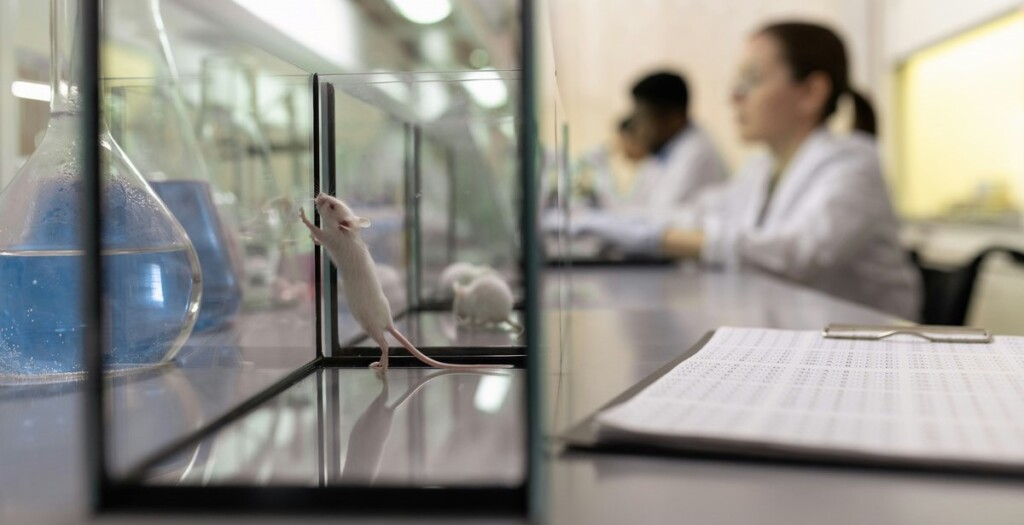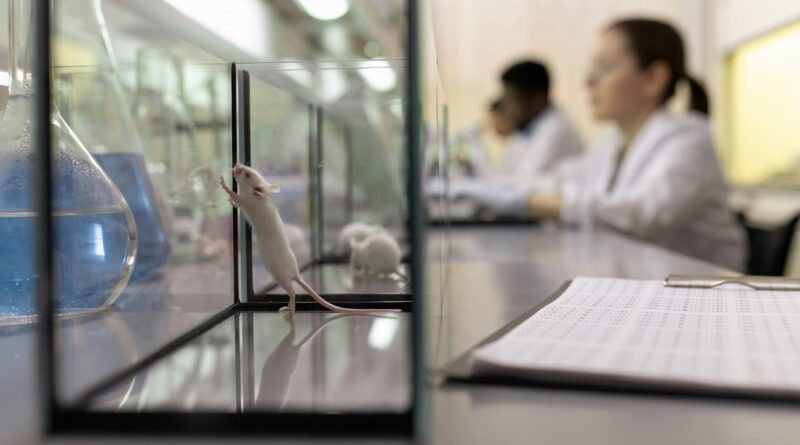NIH Funding Now Will Prioritize Research That Eschews Animal Testing to Push Innovation

The National Institutes of Health recently announced that in order to improve the quality of science used in drug development, the agency would favor grant proposals that move away from animal testing.
The FDA, which had previously announced a similar change, described the decision as one that would move research towards using “a range of approaches, including AI-based computational models of toxicity and cell lines, and organoid toxicity testing in a laboratory setting.”
Despite the near-ubiquity of mouse models in scientific research, other animals, such as beagles and primates, are also used in drug trials that receive funding through NIH grants.
Under Director Jay Battacharya, the agency believes the decision will usher in “a new era of innovation.”
Some bodies of research have been inconclusive on the efficacy of translating the results of animal models to human diseases, such as Alzheimer’s disease and cancer, a statement from the NIH read.
These translational challenges to humans may be due to differences in anatomy, physiology, lifespan, and disease characteristics. While humans and animals may share genes, some studies have shown there could be functional differences between organ and body systems that may result in some translational limitations.
Indeed, many notably positive study results are delivered with a caveat that humans are different from mice.
To integrate innovative human-based science, the NIH intends to establish an Office of Research Innovation, Validation, and Application (ORIVA) within NIH’s Office of the Director. The new office will coordinate NIH-wide efforts to develop, validate, and scale the use of non-animal approaches across the agency’s biomedical research portfolio and “serve as a hub for interagency coordination and regulatory translation for public health protection,” the statement read.
NIH ON THE MARCH: NIH to Work with Food Companies to Get Harmful Synthetic Food Dyes, Approved for Decades, Out of US Grocery Stores
Animal rights advocates celebrate the decision
“An astonishing 90-95% of drugs that pass animal tests go on to fail in human clinical trials, driving up costs for drugs, harming millions of animals, and delivering too few tangible results for patients in life and death circumstances,” wrote Wayne Pacelle, President of Animal Wellness Action.
Pacelle lauded both the NIH and FDA decisions, claiming the consequences meant that perhaps in a few years, we’ll stop using millions of animals for testing. That includes thousands of primates and beagles every year.
NIH will also publicly report on research spending annually to measure progress toward reduction of funding for animal studies and an increase in funding for human-based approaches.
ANIMAL RIGHTS VICTORIES: Gucci to Go Fur-Free and Auction the Remaining Products to Benefit Animal Rights
FDA Commissioner Dr. Marty Makary was quoted in an agency release that the decision would be a “win-win for public health and ethics.”
“For too long, drug manufacturers have performed additional animal testing of drugs that have data in broad human use internationally. This initiative marks a paradigm shift in drug evaluation,” said Makary.
Makary too mentioned “human organ model-based lab testing” in the FDA release. This leverages the same techniques that allow companies to try to sell lab-grown meat to consumers—except growing semi-functioning organs that, when combined with technology, can provide a working replica of a human organ.
Such technologies have already been demonstrated—such as the Wyss Foundation’s “lung-on-a-chip” that combines modern tissue engineering with advanced microfabrication.
CHECK OUT: San Francisco Will Consider Ending All Prosecution of Psychedelic Drug Use
Similar to the Wyss Foundation, there are private sector enterprises already at work performing this kind of evaluative science. California’s Radicle Science sought to bring machine learning and crowdsourced data collection to provide gold standard-level rigor to real-world observations in order to help medicines and products without Big Pharma backing get the data they need for FDA-approval.
Susan J. Hewlings, Senior Vice President of Scientific Affairs at Radicle Science told GNN it was “exciting” to see NIH and FDA moving in the direction of collecting data that “only real-world methodologies can provide.”
“Our work has always centered on the belief that the most meaningful outcomes come from studying actual human experiences in real-life settings,” Hewlings told GNN.
“When regulatory agencies like the FDA and institutions like the NIH begin to embed that same philosophy into the future of research funding and guidance, it tells us we’re not just on the right path—we’re helping shape it.”
SHARE This Revolution In American Drug And Medicine Testing On Social Media…

